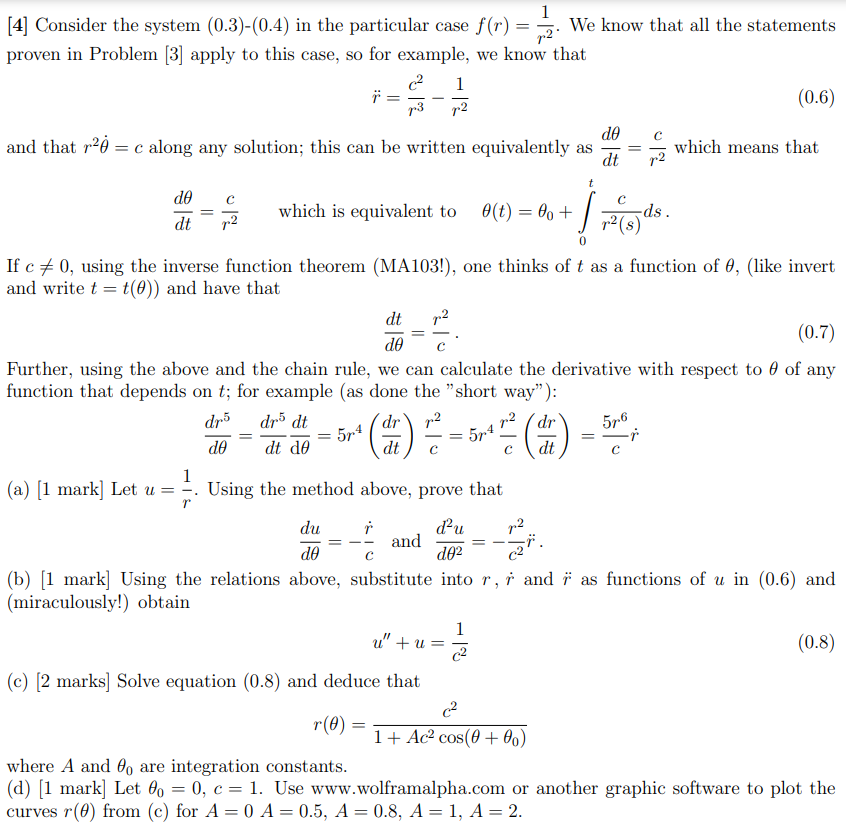Answered step by step
Verified Expert Solution
Question
1 Approved Answer
1 = We know that all the statements [4] Consider the system (0.3)-(0.4) in the particular case f(r) = proven in Problem [3] apply

1 = We know that all the statements [4] Consider the system (0.3)-(0.4) in the particular case f(r) = proven in Problem [3] apply to this case, so for example, we know that c2 7 = - 1 12 (0.6) de and that 20: =c along any solution; this can be written equivalently as which means that dt t de which is equivalent to 0(t) = 00 + dt C -ds. If c 0, using the inverse function theorem (MA103!), one thinks of t as a function of 0, (like invert and write tt(0)) and have that dt de 7.2 = (0.7) Further, using the above and the chain rule, we can calculate the derivative with respect to 0 of any function that depends on t; for example (as done the "short way"): dr5 dr5 dt dr r2 = 5r4 de dt de dt - = C 1 5p4 7.2 dr 57-6 - C dt = (a) [1 mark] Let u = . Using the method above, prove that r du de j du 1.2 and = d02 =-- (b) [1 mark] Using the relations above, substitute into r, and r as functions of u in (0.6) and (miraculously!) obtain (c) [2 marks] Solve equation (0.8) and deduce that 1 u" + u c2 c2 r(0) 1+ Ac2 cos(000) (0.8) where A and 0 are integration constants. (d) [1 mark] Let 00 = 0, c = 1. Use www.wolframalpha.com or another graphic software to plot the curves r(6) from (c) for A = 0 A = 0.5, A = 0.8, A = 1, A = 2.
Step by Step Solution
There are 3 Steps involved in it
Step: 1

Get Instant Access to Expert-Tailored Solutions
See step-by-step solutions with expert insights and AI powered tools for academic success
Step: 2

Step: 3

Ace Your Homework with AI
Get the answers you need in no time with our AI-driven, step-by-step assistance
Get Started


